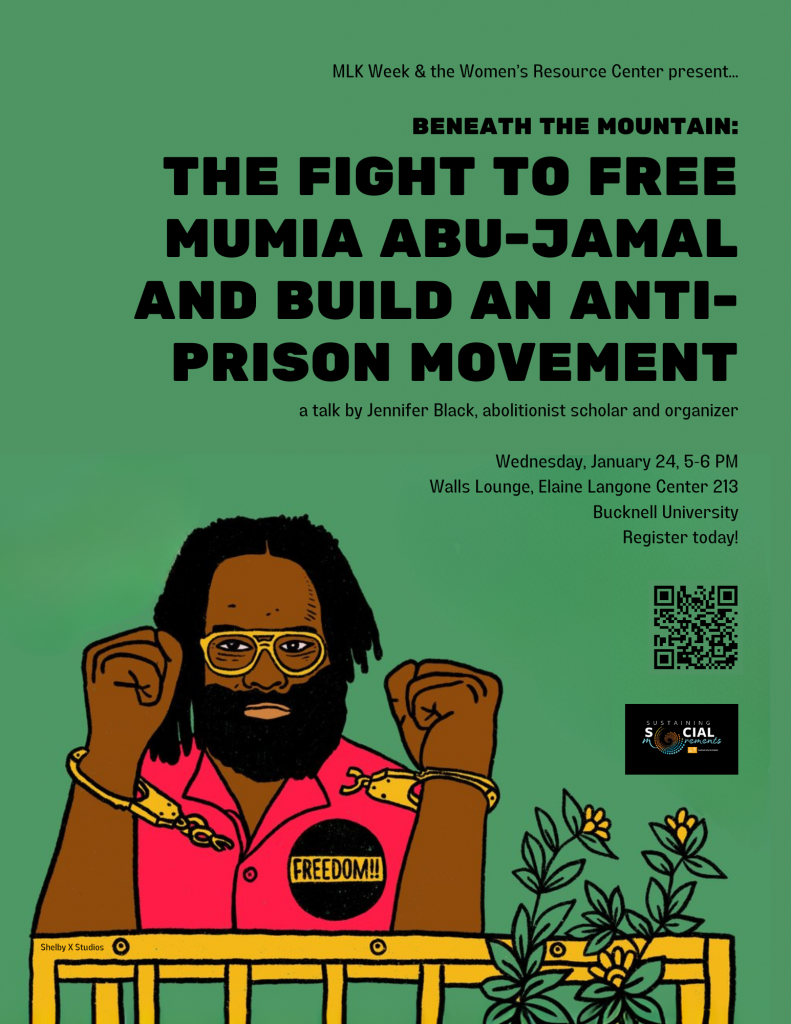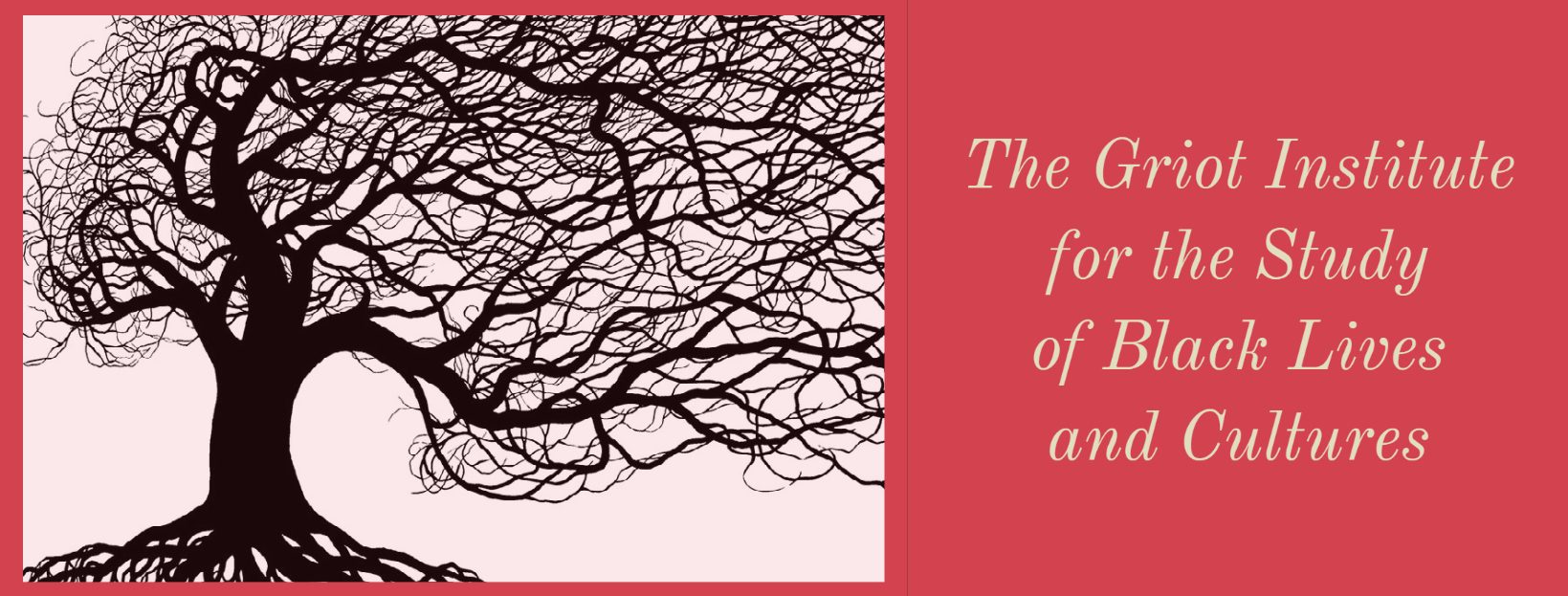
Author’s Note: Martin Luther King Jr. Week is an annual campus community gathering to honor the life and legacy of Rev. Martin Luther King Jr. through learning, discussion, community engagement and art. The theme for this year is “Sustaining Social Movements.” This article covers the Wednesday, January 24 event cosponsored by the Bucknell Women’s Resource Center and the Lewisburg Prison Project, which featured Jennifer Black – a scholar-activist at Penn State University.
On Wednesday, January 24th the penultimate guest speaker for MLK Week, Dr. Jennifer Black, joined a packed room of Bucknell students, faculty, staff and community members for a reflection on the life, legacy, and ongoing, wrongful imprisonment of Mumia Abu-Jamal – a man who has undoubtedly lived multiple lives in this one alone. A Philadelphia native, Mumia is an internationally celebrated writer and radio journalist having published 13 books, penned what seems like hundreds of essays, and conducted broadcasts and radio interviews with organizations, scholars, and activists such as Marc Lamont Hill, Kalonji Changa and Black Power Media, and DemocracyNow. Mumia is also a veteran of the Black Panther Party, supporter of the MOVE organization, and political prisoner. Perhaps no two quotes from Martin Luther King Jr. speak as pointedly to the life and case of Mumia Abu-Jamal than “[w]e are caught in an inescapable network of mutuality, tied in a single garment of destiny” and King’s assertion that the United States is “the greatest purveyor of violence in the world today.”
As the story goes, the State of Pennsylvania’s claim is that on December 9, 1981, “Mumia – driving a taxi in downtown Philadelphia – came across his brother who had been stopped by police officer Daniel Faulkner. Prosecutors further claimed that, motivated by a longstanding hatred of the police from his days as a Black Panther and supporter of MOVE, Mumia ran to Faulkner and shot him in the back. Finally, they allege that, although wounded by a return shot from Faulkner, Mumia stood over the fallen police officer and shot him several times in the face” (FreeMumia.com). According to Dr. Black and FreeMumia.com, the state’s version of what happened has glaring inconsistencies, casting doubt on what they claim to have occurred. Over the course of Mumia’s legal proceedings and imprisonment, the original trial judge’s racial bias has been exposed; it’s been claimed that Mumia was originally provided “ineffective and under-resourced defense counsel;” and witnesses have recanted their testimony given at trial (FreeMumia.com). Mumia has now been imprisoned in Pennsylvania for 41 years, the former part of which was spent on death row.
In her lecture, Dr. Black remarked that it’s “hard to challenge state power without becoming victimized by the system we’re trying to change and remove” and Mumia – much like Martin Luther King Jr. – is an example of this. Whereas King was ultimately assassinated and Mumia is held captive, both King and Mumia are used by the state as a warning for any and all who dare to engage in political struggle for Black liberation and power. To warn, dissuade, suppress and repress is the very function of prisons in the United States, and to combat and outmaneuver such power, we’ll need much more than political and legal reforms that do nothing to undermine the state’s expansion and reach. What we need is to individually and collectively ground ourselves in the traditions of Mumia Abu-Jamal and Martin Luther King Jr. We need to organize against what King called the ‘three evils of society’ – racism, economic exploitation, and militarism.
